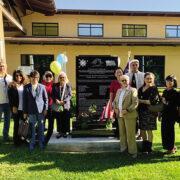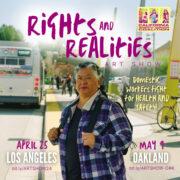“TODAY, we continue the long journey toward an America and a world where liberty and equality are not reserved for some, but extended to all. Across the globe, including right here at home, millions of men, women, and children are victims of human trafficking and modern-day slavery. We remain committed to abolishing slavery in all its forms and draw strength from the courage and resolve generations past.” — Pres. Barack Obama
Every year, millions of Filipinos go to great—and in some cases—drastic lengths by working abroad, to pursue better lives for themselves and their families.
There are an estimated 15,000,000 overseas Filipino workers (OFWs) across the world. On average, 6,000 Filipinos leave the country each day to work abroad, an increase from only around 2,500 before 2010. At least a quarter of the country’s labor force has gone to work overseas.
Many of these OFWs are often compelled to work while succumbing to unfair and harsh working conditions, including long hours, low pay, and human rights abuses. We’ve heard news of Pinoys who faced death row in China and the never-ending and horrific stories of domestic helpers in the Middle East — all for a chance to seek greener pastures.
Despite the billions of pesos they bring home — which continues to prop up the Philippine economy — the nightmares of being an OFW still linger. These people who resort to severe measures are employed through illegal channels. While many of them would refuse to admit it (for fear of losing their jobs), some of these modern heroes are victims of human trafficking.
The Philippines has recently been upgraded as a Tier 1 country by the 2016 Trafficking in Persons (TIP) report, which rated 190 nations according to their efficiency in addressing human trafficking. This is a welcome development for the Philippines after lingering in Tier 2 status the past years.
The annual TIP report is used as a comprehensive resource by international organizations, foreign governments, and nongovernmental organizations on countries in tiers based on their compliance with the standard of the US’ Trafficking Victims Protection Act (TVPA).
Freeing victims, preventing trafficking, and bringing traffickers to justice are the ultimate goals of the report and of the US Government’s anti-human trafficking policy.
Tier 1 countries met minimum the standards of the American government’s “principal diplomatic tool to engage foreign governments on human trafficking,” which means a government “fully complied” with the Trafficking Victims Protection Act. Tier 2 nations do not fully comply but are “making significant efforts” to do so, while Tier 2 Watch List involves other negative indicators. Nations under Tier 3 neither comply nor make significant efforts.
However, the TIP report describes the Philippines as “a source country and, to a lesser extent, a destination and transit country for men, women, and children subjected to sex trafficking and forced labor.”
The TIP Report also said that a significant number of Filipino migrant workers are subjected to sex trafficking and forced labor—predominantly via debt bondage—in the fishing, shipping, construction, education, nursing and agricultural industries, as well as in domestic work, janitorial service, and other hospitality jobs, particularly across the Middle East, Asia and North America.
Despite continuous worldwide sanctions and efforts to alleviate human trafficking, business continues to thrive for this repressive industry.
Stereotypically, human trafficking stories often depict victims as innocent young girls, who are seduced from their homes and forced into the sex industry. But now, cases involve men, women and children of all ages falling prey to traffickers for a promise of better pecuniary compensation.
No matter how strict the laws are implemented or how rigorous campaigns are against human trafficking, the problem will not cease to exist if not dealt with first at home. Filipinos or anyone for that matter, seek jobs abroad due to lack of economic opportunities and the struggle to meet the basic needs.
Before apprehending perpetrators, governments should first promote and protect the basic human rights. (AJPress)




